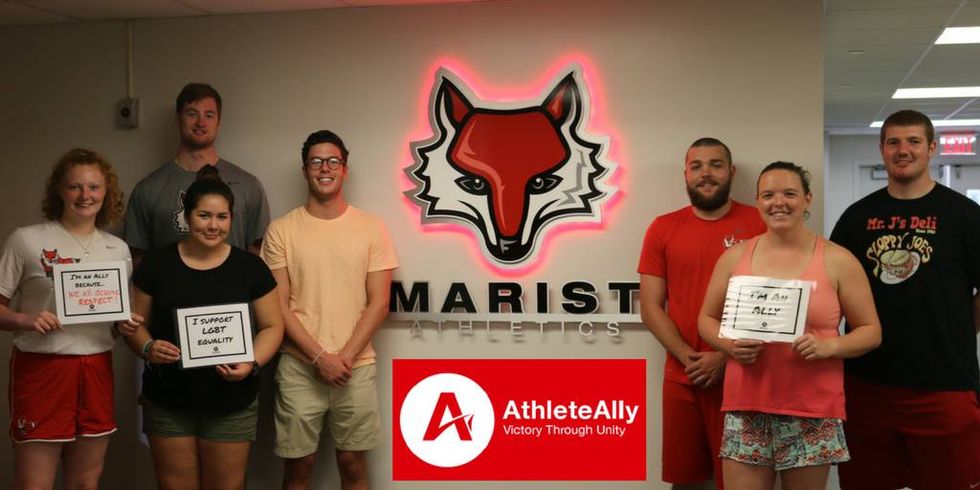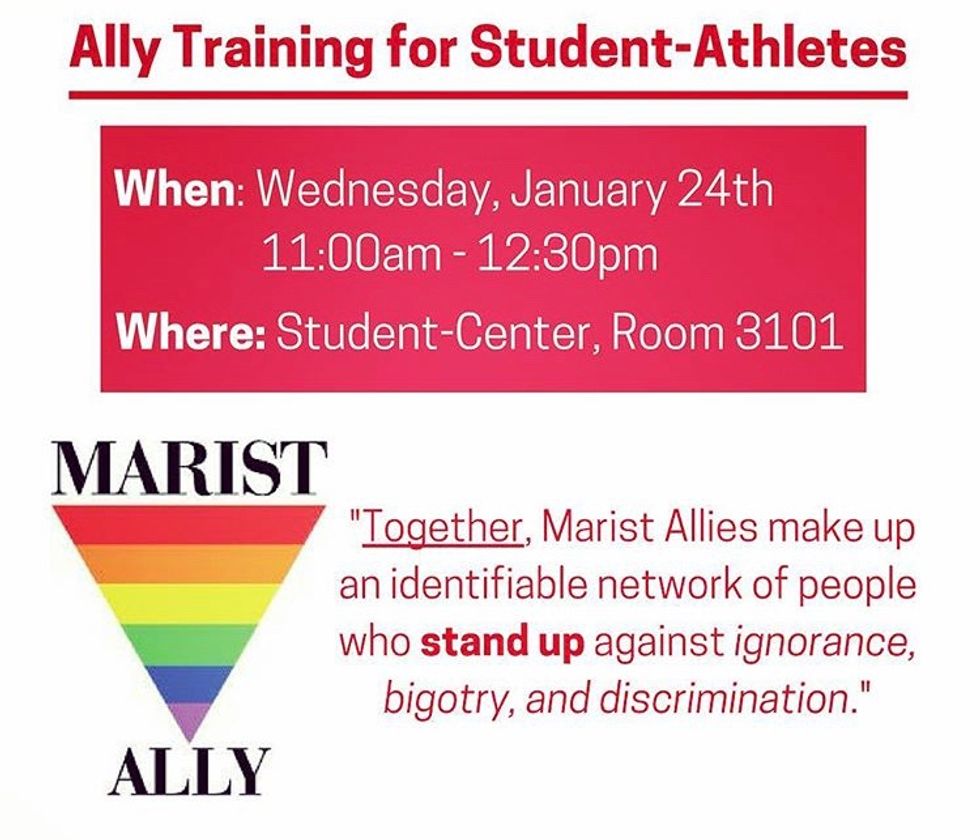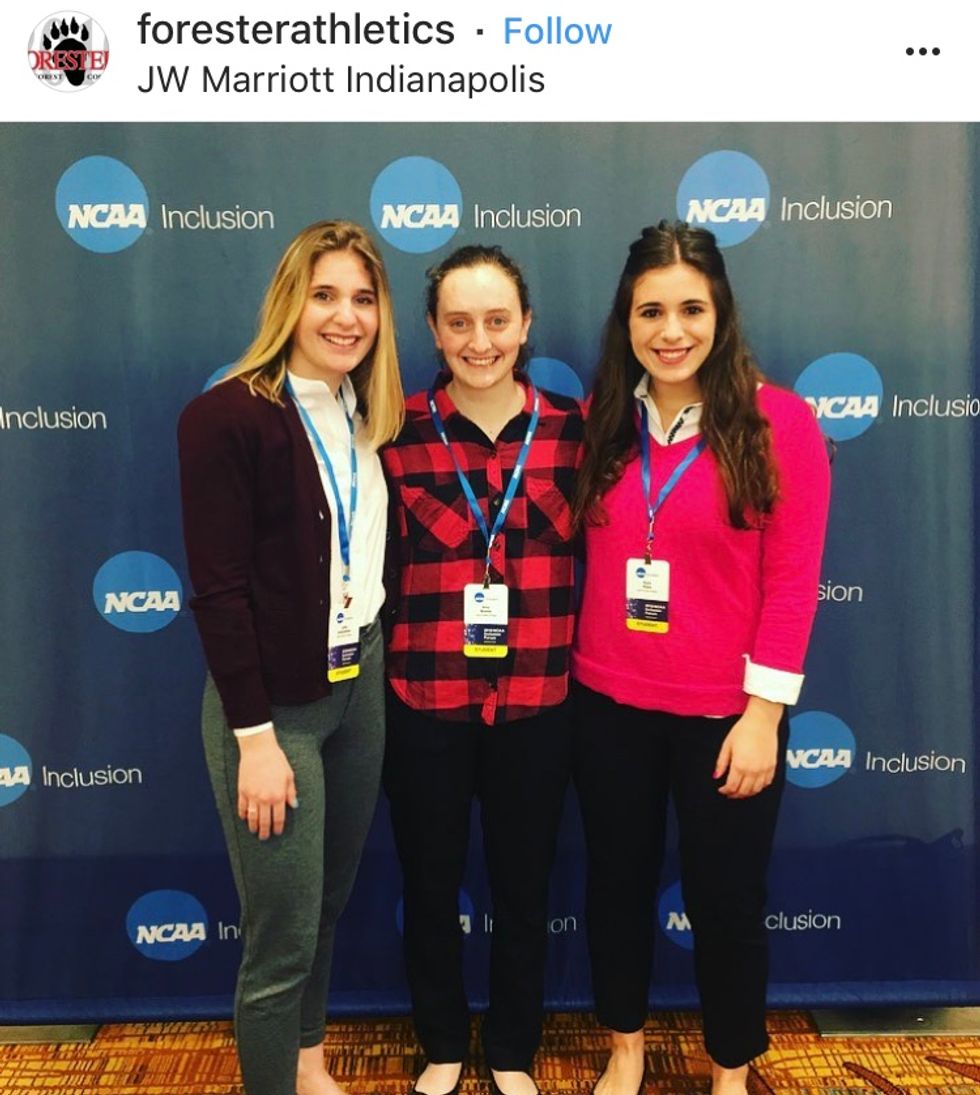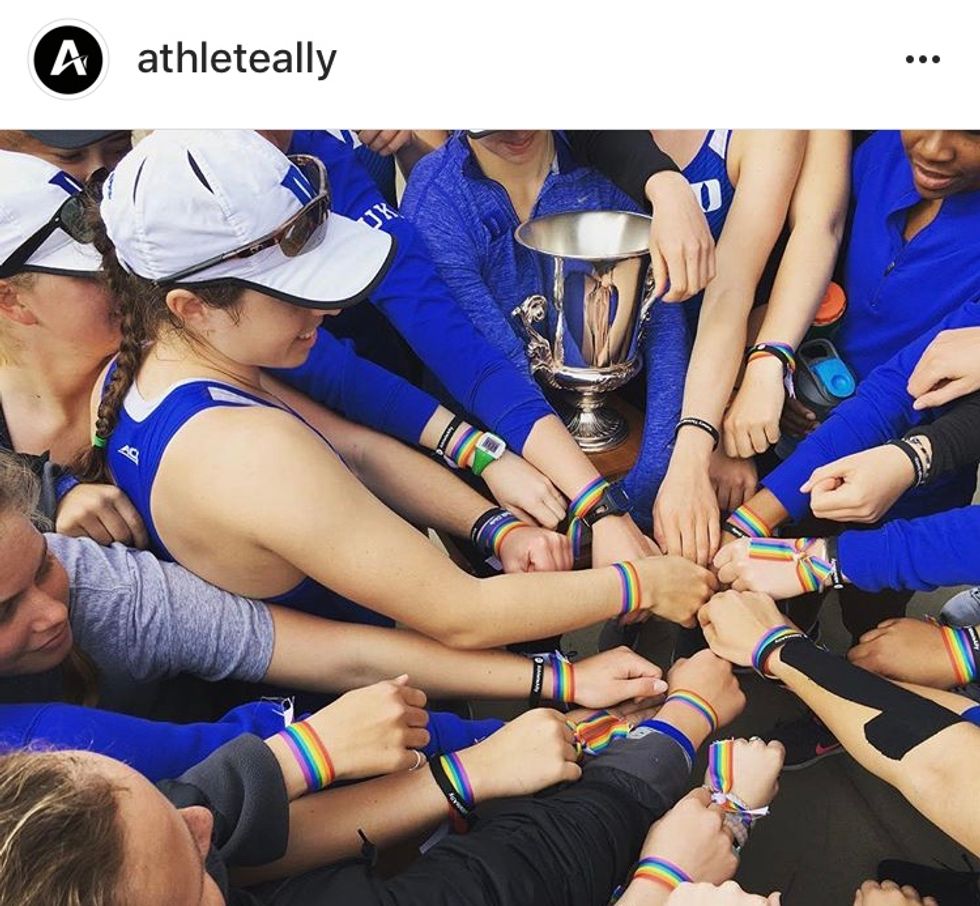Sports have always been a gendered institution. From the beginning of athletic history, men have been the ones competing. It was only in the last 100 years that women really got a place on the field and started playing competitively, and even now some sports (American football, for example) are dominated by men. There are even different rules between some of the same sports based on gender.
It is almost impossible to separate sports and gender: the two are inextricably linked. Our society, historically, has also oppressed the LGBT population. This exclusion from the culture and practice of sports has improved over time, and strides toward equality have been made, but it is now time for college athletics departments to take a stand for inclusion. Though the policy could be tweaked, attitudes towards LGBT athletes have a long way to go.
In the past, the National Collegiate Athletic Association (NCAA) Office of Inclusion rolled out policies regarding transgender athletes, the Annual Inclusion Forum, and a bevy of resources found online here. All of this shows an effort towards inclusion and equality, but for now, it is up to independent colleges' and universities' athletics departments to adopt NCAA policies and practices.
I personally attend Marist College as an athlete. Over the years, I have had countless teammates that are a part of the LGBT community, and I believe it is a student's, department's, and team's responsibility to support each other. Not all athletic departments are perfect: Marist is no exception. But, with an open mind, I believe some changes can be made and every college across America could reach their inclusive potential.
No matter what college you come from, what sport you play or what division you happen to be in, please consider this list below with your school and teammates in mind. What’s your next step?
Here are what I consider the steps toward LGBT inclusive athletics departments:1. Establish clubs/ organizations for LGBT athletes and allies.
Athlete Ally is a non-profit organization that advocates for and takes action to better LGBT inclusion in athletics at all levels. This organization has “chapters” at colleges across the U.S. These clubs use their perspective of being an athlete to better the institutions they play for and promote equality on campus. It is an easy club to form and can be crucial to showing your LGBT athletes that they are supported.
2. Offer Ally Training for student-athletes
Ally Training is formal training offered by one’s college or university that teaches students and faculty/staff about what it means to be an ally and how to be the best one possible. This training is important because it exposes participants to prejudices and ideas that they maybe never realized before.
3. Attend NCAA Annual Inclusion Forum
Each year, the NCAA Office of Inclusion hosts an annual NCAA Inclusion Forum. This event is open to any NCAA institution and its staff and students. The forum focuses on discussions like race, class, sexuality, gender, and more, bringing in experienced speakers and confronting policy. Attending this event shows that your administration is serious about inclusion and fostering a better campus culture.
4. Provide accessible resources
We find almost everything online now. But what happens when a prospective or current student-athlete wants some resources on coming out to their teammates? Or even just talking about it in the first place? Having resources both online and in person are invaluable to an athlete’s experience at a school: it can signify a recognition of the person’s identity and support of that identity on an administrative level.
A good example of a college's resources can be found on Cornell's website here.5. Display your pride
Many schools, organizations, and conferences have taken the initiative to represent the rainbow flag that symbolizes LGBT support on their competition uniforms. This is an effective, public way to take a stand with a school's athletes.
























